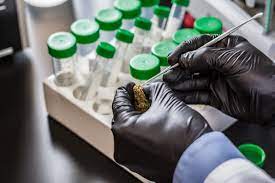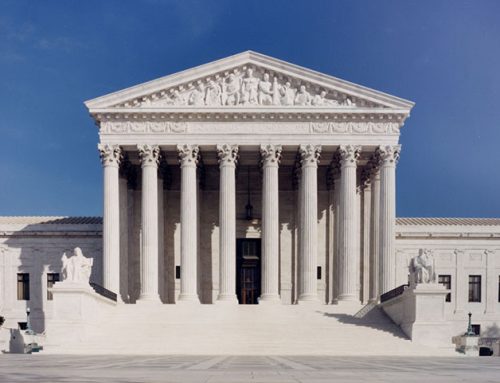The Michigan Cannabis Regulatory Agency Establishes State-Run Testing Lab
LOS ANGELES– The Michigan Cannabis Regulatory Agency (CRA) is taking steps to build trust in the state’s cannabis industry by establishing a new state-run testing lab. The agency hopes that the lab will enable it to stymie the flow of illicit products into the legal market, monitor private sector labs, and establish standard testing methodologies. The Michigan Legislature is expected to approve a $4.4 million earmark for the lab in the coming weeks.
According to CRA Executive Director Brian Hanna, the lack of an unbiased lab in Michigan has been a challenge for the industry, and the agency hopes to fill that gap by providing impartial testing services. “Our goal is to be able to provide those services that will ultimately make the industry safer and save them money,” he said.
Under state rules, cannabis growers are required to test 0.5% of a harvested batch of cannabis at an independent lab before it can be sold for consumer use. Batch sizes are capped at 50 pounds under the regulations. In March 2023, labs tested nearly 103,600 pounds of cannabis flower and shake with a consumer sales value of $11.3 million, based on CRA data.
Despite these regulations, not all batches of cannabis sold in the legal market are being tested. The CRA has been stepping up enforcement efforts to address this issue, particularly in light of the oversupply of illegal cannabis in the legal market. In January 2022, adult-use prices plummeted to $80 per ounce of flower from more than $512.05 per ounce in January 2020, according to CRA data. Prices have since climbed to $86.87 per ounce last month, which Hanna credits to increased CRA enforcement.
The CRA has conducted investigations that have revealed a pattern of untested illicit products entering legal dispensaries. For instance, the CRA suspended the medical and adult-use licenses of Lansing-based processor TAS Asset Holdings LLC for sourcing illicit market product, packaging it, and selling it to dispensaries. The investigation ended with 23 formal complaints against TAS, and hearings are scheduled to determine whether the company will permanently lose its licenses.
Currently, the CRA has to outsource cannabis testing during an investigation, which is a costly and lengthy process, said Hanna. Investigations can cost between $2,700 and $27,000 and take up to four months to complete. With the new lab, the CRA will be able to perform tests in-house, which will be cheaper and faster for everyone involved.
The new lab will also help the CRA audit private labs for accuracy. In 2021, the agency alleged that tests on 64,000 pounds of cannabis product vetted by Bay City-based Viridis North contained “inaccurate and/or unreliable results” after spot checking the product at a different lab. The value of the recalled product was roughly $229 million at the time. A judge later ordered the CRA to release much of the product back into the market.
Standardization is a key issue in the industry, with a lack of standardization among testing methodologies creating a headache for the industry and regulators, said Benjamin Sobczak



































